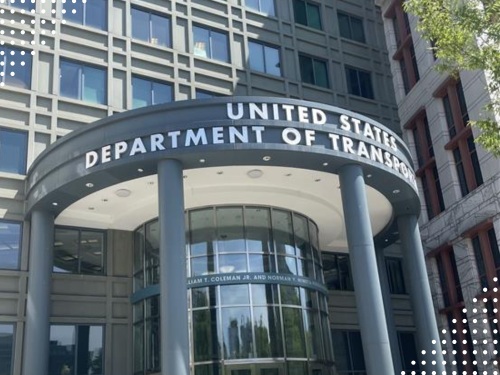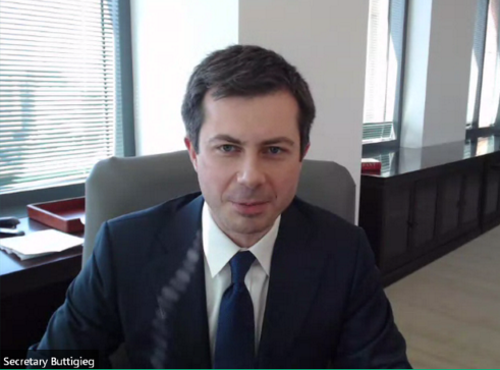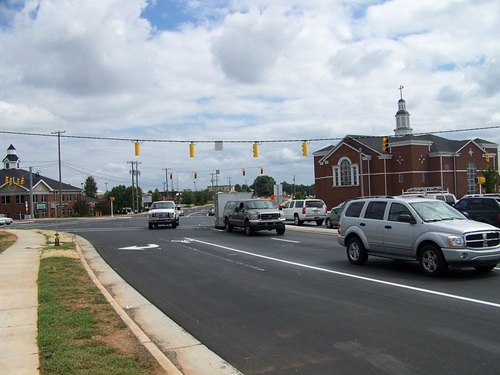Restoring the solvency of the Highway Trust Fund must occur in a way that is “sustainable, predictable, defensible, and affordable” with “some sort of road usage levy necessary” on all vehicles in the future, according to Pete Buttigieg (seen above), secretary of the U.S. Department of Transportation.
Speaking at the virtual 2021 American Association of State Highway and Transportation Officials Washington Briefing on February 25, Buttigieg stressed that restoring the solvency of the HTF “is really the order of the day, especially when we have coming around the corner reauthorization of surface transportation legislation.”
The current Fixing America’s Surface Transportation or FAST Act funding measure – extended for one year as part of a broad continuing resolution signed in October 2020 – expires on September 30.
Yet Buttigieg noted in his remarks that while the federal tax on motor fuels has not been increased since 1993, and the HTF has not been solvent since 2008, “the gas tax is not a long term solution [for regaining HTF solvency] anyway. I don’t think that is where energy will be in this administration, especially as there are so many different [funding] possibilities on the table like user-pay through a VMT [vehicle miles traveled] fee.”

However, when it comes to switching to a VMT fee, “the trouble is no one has yet put together a solution to resolve privacy concerns,” he said. “But the future of the [HTF] revenue side is not looking like what we have today.”
Buttigieg also touched on a wide range of other topics during his speech, including:
- The “first order of business” at USDOT right now is to understand how the agency can be “that good partner” to state, local, and tribal governments across the country. “We have to understand that transportation investment is about a lot more than dollars and cents; it is about American values at stake, even in work that seems so very technical,” he said. “We’ve got to make sure everything we do leads to less pollution and to infrastructure that is more resilient in the face of climate change; that accelerates equitable growth but also increases the global competitiveness of the country.”
- Addressing equity and climate change will require the “whole of government” and true coordination between all of USDOT’s modal agencies. “We need to be consistent at the state and local levels,” Buttigieg noted. “But there is so much more to this: it’s about land use decisions, road shifts to make it safer to walk and bike, that transit gets the right support. These are not just transportation questions; these are housing questions, energy questions, and justice questions.”
- In terms of transportation priorities, safety comes first, followed by job creation and support for equity and climate change policies. “But we will do all of that yet be flexible enough so state and local governments can craft specific solutions. It can’t be a one-size-fits-all approach,” he said. “We also must make sure smaller communities have access to the ideas and opportunities of the larger ones. ‘Complete Streets’ is a prime example for the benefits of applying those principles to smaller communities as well. There is a lot of promise there.”
 Top Stories
Top Stories


